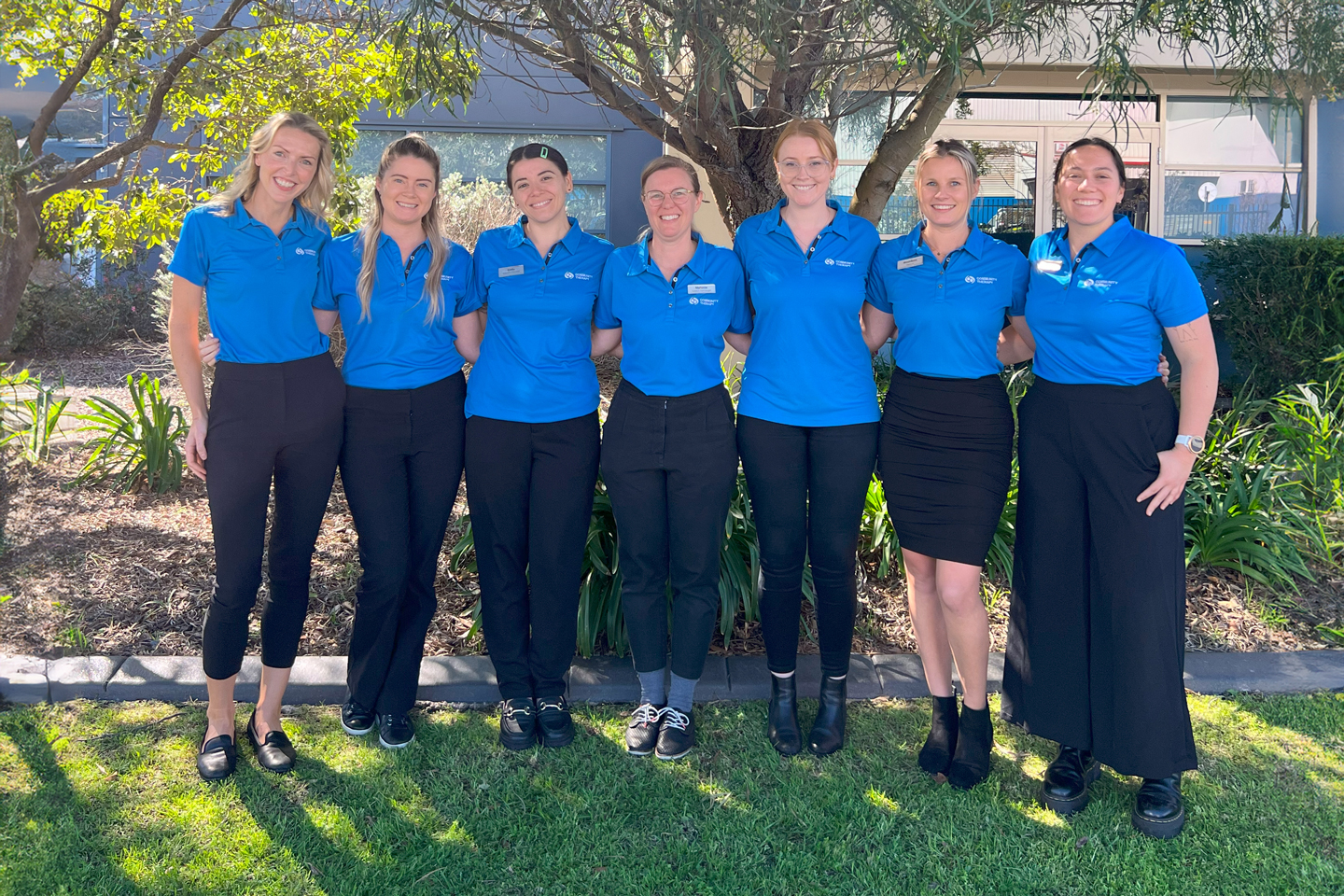School Readiness
Starting school is one of the most exciting—and sometimes scary—milestones in a child’s life.
For many parents, the lead-up to this transition is filled with questions: Will my child thrive in the classroom? Do they have the skills they need? How can I support them at home?
At Community Therapy, we understand how important it is for children to feel ready and confident when they begin school.
Our team of experienced occupational therapists (OTs) and speech pathologists regularly support families across the Central Coast and Hunter New England regions to navigate this journey; whether through individual therapy, school readiness groups, or school-based screening programs.
Let’s look at what school readiness means, and how our team can support your child to start school, even if their path is different than expected.

NDIS Registered Provided Since 2017
Receiving audits by SAI Global
Experienced OTs Across Central Coast and Hunter
Receive professional and prompt support in your home or school
Convenience and Short Wait Times
We have a large local team of therapists
What Is School Readiness?
School readiness goes beyond just turning five and heading off to kindy. It’s about having a foundation of skills: emotional, physical, social, and cognitive, that help children engage in learning and cope with the demands of a structured classroom.
Children are often referred to occupational therapy or speech pathology for school readiness support when parents, early childhood educators, or healthcare professionals notice that certain skills might not be quite where they need to be.
Some schools also offer school readiness screening conducted by OTs or speech pathologists, which helps flag areas where extra support might be beneficial.
At Community Therapy, we partner with schools to provide these assessments, and we also run group programs and 1:1 therapy designed specifically to prepare children for the transition into primary school.

What Skills Are Assessed for School Readiness?
During a school readiness assessment, an occupational therapist and/or speech pathologist will look at several key areas:
- Fine motor skills – Can your child use scissors, hold a pencil, or manage buttons and zippers?
- Gross motor skills – Are they able to sit upright, participate in active play, or navigate a playground safely?
- Self-care skills – Can they dress and undress themselves, use the toilet independently, and manage hygiene routines like washing hands?
- Social and emotional regulation – Are they able to take turns, follow instructions, and regulate their emotions when upset or frustrated?
- Communication skills – Are they able to express their needs clearly, follow multi-step directions, and engage with peers and adults?
Our goal is to identify where a child might need a little extra help. Early support can make a big difference in setting them up for success.

How Does Occupational Therapy Help?
Occupational therapists are trained to support children across a wide range of developmental areas. For school readiness, our focus is on helping children build practical, age-appropriate skills for daily life and classroom learning.
Some examples of how we support school readiness include:
- Handwriting and pre-writing skills – learn more
- Dressing and toileting routines
- Self-regulation strategies for managing big emotions
- Visual motor integration (e.g. copying from the board)
- Social participation and play skills
- Building attention and stamina for structured tasks
Therapy might take place in a clinic, at school, or even at home, and often includes fun, play-based activities tailored to each child’s interests and needs.

Supporting Self-Care and Daily Routines
If your child finds it difficult to manage tasks like dressing, toileting, or tying their shoelaces, our therapists can help.
We begin by looking at the sequence of steps involved in the task and identify which parts are tricky. From there, we might recommend breaking the task into smaller steps, practising with modified clothing (e.g. elastic-waisted pants instead of jeans), or using assistive technology.
Some examples of assistive tools we might recommend include:
- Elastic shoe laces or Velcro shoes for children learning to manage footwear
- Sensory-friendly lunchboxes with easy-open compartments
- Weighted lap pads or fidget tools to support focus and regulation
Visual aids like schedules, reward charts or storyboards to support routine and behaviour

What If My Child Isn’t Ready for School Yet?
If a child isn’t quite ready for school, families can discuss with their chosen school the possibility of delaying the start date or exploring other early learning programs. In the meantime, Community Therapy can continue working with your child through individual therapy or group programs designed to build key skills.
Some schools also offer bridging or transition classes, or support units for children with specific developmental needs. Our team can support families in understanding their options, communicating with schools, and advocating for the right level of support.
While Community Therapy does not choose a school on your behalf, we will help you understand what to look for in a learning environment that suits your child’s needs, particularly if they live with a disability, medical condition or sensory processing differences.

Who Does Community Therapy Work With?
Our team supports children aged 0–17 across a wide range of backgrounds. This includes children:
- Living with a disability or developmental delay
- With NDIS plans
- Using private health or Medicare rebates
- Whose families are privately paying
Every child deserves to start school feeling confident and supported—and our team is here to help make it happen.

Get in Touch
If you have questions about school readiness, or think your child may benefit from occupational therapy, we’d love to hear from you.
- We are a family owned and operated company
- We are mobile and can visit your home or school
- We have a wide range of clinicians and will allocate the most appropriate
- You can ask us questions before engaging us
Our team can discuss your situation, book an assessment, or help you get started with a support plan tailored to your family’s needs.


